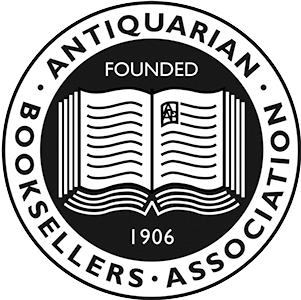[Basel: Oporinus,, 1547]. Europe's first orientalist advocates for universal peace Rare first edition of this treatise on the role of Jesus as cosmic principle of unity, by one of the most eccentric polymaths of the French Renaissance. Postel was a Christian Kabbalist, philosopher, linguist, astronomer, reformer, diplomat, and self-proclaimed prophet, who advocated for the universal harmony of religions and cultures. Born in France, Guillaume Postel (15101581) was proficient in several Semitic languages, particularly Hebrew and Arabic. He held the first chair of Arabic in Europe (at the Collège Royale) and produced one of the earliest Arabic grammars to appear in print (Linguarum Duodecim Characteribus Differentium Alphabetum Introductio, 1538). He was among the first scholars to proclaim the need for a universal religion and state: "His attempt to harmonize Christian, Jewish, and Mohammedan thought give him an important place in the history of religious tolerance, whereas his prophecies about a universal religion and a universal monarchy seem to anticipate more recent ideas of a world state and of general peace" (Kuntz, p. IX). He proposed a theory of "universalism" based on the possibility of unifying all nations under the same language (Hebrew), religion (Christian), and government (France). After 1545, he began to see himself as a prophet entrusted by God with the task of bringing peace to the world (with the help of his "New Eve", a woman named Johanna that he had met in Venice). Due to his unconventional attitude and ideas, many of his books were placed on the Index and he was condemned to life imprisonment in Rome. He fled from the prison in 1560. De nativitate mediatoris ultima presents Christ as the unifying force in Postel's project of universal peace and harmony. The work opens with a letter to the delegates to the Council of Trent (1545), expressing disappointment. Postel argues that in order to represent the supreme authority of the Church, the council had to be universal, but this did not happen because only representatives from a few nations were involved. Postel then explains that "being the mediator between humankind and God, Christ represented the universal reason governing every single aspect of reality. Individual human reasons were parts of this living communion of shared life and knowledge. Moreover, through the Incarnation, Christ had demonstrated that he could communicate himself and God's being to us... Through him God gave us the language of the law and of the Scriptures. It is by knowing the language of the Holy Scriptures that we will secure access to the ultimate truth" (Giubilini, pp. 370-7). The margins contain several annotations in a neat contemporary hand. The early owner compiled an index of the contents on the verso of the title page (the ink is now rather faded) and added references to relevant passages of the Bible in the margins of several pages. This work is notably rare on the market, with only two other copies recorded at auction in the last two decades. Small quarto (189 x 140 mm). Woodcut initial, text within red rules, initials rubricated throughout. Eighteenth-century brown calf, spine with raised bands, gilt decoration in compartments, board edges tooled in gilt, marbled endpapers, edges gilt. Housed in a dark blue cloth flat-back box by the Chelsea Bindery. 20th-century bookplate of one Eckhard Günther on front pastedown, recent bibliographical annotations in pen on rear endpaper. Spine ends and joints expertly repaired, corners consolidated, loss to label, endpapers browned from turn-ins, contents lightly foxed, faint damp stains to a few leaves, otherwise clean. A very good copy. Bouwsma 13. Caillet 8903. Roberta Giubilini, "Nicholas Cusanus and Guillaume Postel on Learning and Docta Ignorantia", in Simon J. G. Burton, Joshua Hollmann, & Eric M. Parker, eds, Nicholas of Cusa and the Making of the Early Modern World, 2018; Marion L. Kuntz, Guillaume Postel. Prophet of the Restitution of All Things. His Life and Thought, 1981.
















